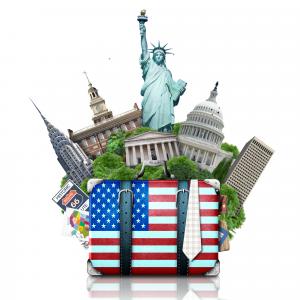Biden Administration to clarify rules for low-income Residency Applicants
This is great news for all low-income immigrants that wish to apply for residency in the United States of America.
WILMINGTON, DELAWARE, UNITED STATES, September 14, 2022 /EINPresswire.com/ -- In August 2022, the Biden administration announced it would clarify its immigration regulations around the term “public charge”. This is a term used by the Department of Homeland Security, the Department of State, and the Department of Justice when determining a potential immigrant’s eligibility for residency status.
The new regulation, which will make it easier for low-income immigrants to obtain US Residency, will take effect on December 23, 2022, and will clarify the administration’s definition of public charge, which is a clear step away from the Trump-era definition.
Specifically, a public charge is someone who relies on state assistance in the form of food vouchers, housing assistance, Medicaid, and more. During the Trump administration, the public charge definition was expanded to include these forms of assistance, effectively reducing the number of people who could be eligible.
However, the new rules state that potential green card applicants will only be considered a public charge if they are likely to become “primarily dependent on the government for subsistence”.
In real terms, this means someone could be considered a public charge if they have to be put in a long-term government-funded institution or if they rely on a public cash benefit program for an extended period. Specifically, this will not include health care or access to food and housing vouchers.
It is worth noting, though, that the new regulations do not expand the eligibility of immigrants for state assistance programs. Rather, it clarifies what the state considers to be a public charge, which should make applications easier to process.
The rules will apply to green card applications from both within and outside of the United States. Categories that have some form of inadmissibility – such as refugees, asylum seekers or VAWA applicants – are exempt from the public charge rules. However, this is not a new development.
The key takeaways from these new regulations are:
• The DHS seeks to clarify existing rules, which were made more subjective during the previous administration
• They do not make it easier to obtain a green card necessarily, but rather make it easier to understand whether someone should be admissible to the United States
• The new rules consider public dependence to be long-term and significant reliance on government support, rather than something that is “merely transient or supplementary”
The new DHS regulations will cover employment- and family-based green cards, and applicants who obtain residency status through the Diversity Visa Program. However, considerations are slightly different for Green Card Lottery winners, as it is assumed they will enter the country without employment lined up.
About US Green Card Office: US Green Card Office specifically deals with Green Card & Visa applications for the Diversity Visa Program, also known as the Green Card Lottery. Visit our website to see if your country is among this year's Diversity Visa Qualifying Countries
Thomas Smith
USGCO CORP
+1 646-564-5615
support@usgco.com
Visit us on social media:
Twitter
Other
Legal Disclaimer:
EIN Presswire provides this news content "as is" without warranty of any kind. We do not accept any responsibility or liability for the accuracy, content, images, videos, licenses, completeness, legality, or reliability of the information contained in this article. If you have any complaints or copyright issues related to this article, kindly contact the author above.

